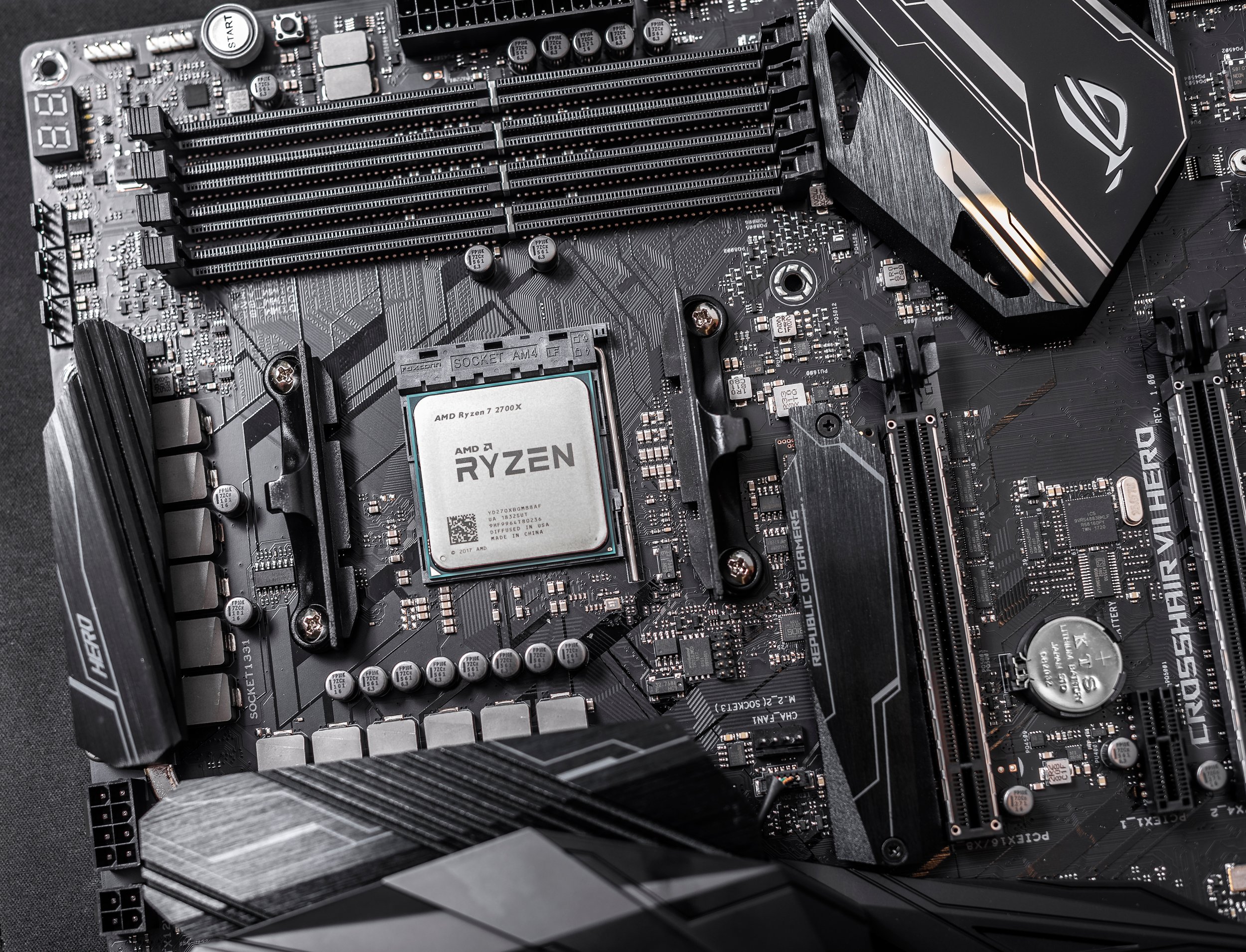AMD Ryzen 7 vs Intel's i7: Pros & Cons Gamers Should Know
There are so many components to consider when building or upgrading your PC. Perhaps flashiest and most publicized are the GPUs, bringing you the best visuals for your games. Behind that, there’s a slew of hardware needed to keep it all running smoothly and quickly.
That’s where the CPU comes in – another of the most crucial components for gaming.
Thankfully for gamers, the market for CPUs is extremely competitive, with a fierce rivalry between industry giants AMD and Intel raging at the top.
Today, our WTFast guide compares AMD’s Ryzen 7 CPU to Intel’s i7 to help you determine which is best for your gaming needs.
We’re going over the most important pros and cons and, crucially, keeping everything in the context of your everyday gaming experience.
This isn’t a report on raw numbers but rather an evaluation of which CPU is best for high-quality gaming without unnecessarily breaking the bank. We’re also going to cover alternatives to improve performance.
Let’s jump right in.
Why the Ryzen 7 and Intel i7?
The battle for superiority in the CPU department has benefited gamers everywhere, especially as it has remained so close for so long.
Many enthusiasts know AMD was widely regarded as the leader in CPUs for the better part of this battle. However, in recent times, Intel has turned the tables with its latest releases of Alder Lake chips, included in some i7 CPUs and newer models like the i9.
Today, we’re comparing AMD Ryzen 7 series to Intel’s i7 — specifically, the Intel i7-12700K vs. AMD’s Ryzen 7 5800X.
That said, Intel is widely considered ahead by raw power (and other metrics, too) in the current market. However, value for money should always be considered, as should the rest of your build and which parts (like your motherboard) work best with certain CPUs.
Comparing Specs
Comparing specs is a bit tricky, mainly because Intel’s i7 series is ahead of AMD’s Ryzen 7.
If we compare AMD’s Ryzen 7 5800X to Intel’s equivalent i7-11700K, the specs are extremely close, with AMD actually taking a slight lead. Once the 12700K steps in, Intel takes the lead back in benchmark results. There are varying results in either comparison, depending on who you ask.
Rather than dive too deep into the hard numbers, let’s talk about what these specs mean for actual gaming performance.
A common theme with computer hardware is that components at the top see diminishing returns in tangible improvements per dollar.
Sure, one CPU might have a one- or two-percent edge in speed. That isn’t a percent you’d ever notice in actual play, so is it worth the price difference?
This is subjective to each gamer, but it’s also worth noting that the most expensive CPUs these days are simply overkill for most everyday gaming uses.
For professional uses — or if money is no object — there's no reason not to go with the newest CPUs. Those are strictly better, albeit marginally. Otherwise, gamers can do their budget a favor and invest elsewhere in their build where the difference could be more noticeable and significant.
With that in mind, let’s talk about some of the pros and cons of AMD’s Ryzen 7 vs Intel’s i7 CPUs.
What Are the Pros of the Ryzen 7?
As we progress through this comparison, it’s important to note that both CPUs we’re covering are excellent options. The differences here are marginal, and AMD’s Ryzen 7 and Intel’s i7 are each generally safe options.
That said, breaking down the differences can help you decide — and sometimes those differences could significantly influence your overall build.
Ryzen 7’s Efficiency
The most significant upside to choosing AMD’s 7 series CPU is its efficiency.
AMD’s Ryzen 7 5800X held a clear lead over Intel’s i7-11700K in power usage and cooling needs, consuming significantly less wattage (in some cases almost half as much).
This isn’t new to the 7 series – for nearly all of the CPU war, AMD has held an efficiency advantage. With Intel’s latest Alder Lake technology, they are finally catching up a bit. Still, the Ryzen 7 CPUs (and previous entries, most notably the Ryzen 5) offer exceptional efficiency, making your overall build and support overclocking and similar activities easier.
Ryzen 7’s Value
It’s a close call between which of these CPUs lead the line as a value option. AMD’s Ryzen 7 5800X is only slightly less expensive than Intel’s i7-12700K, despite the latter being both newer and better in most performance metrics (sometimes by as much as 10 or 12 percent).
That being said, AMD’s CPUs can usually function better with less expensive motherboards. Lower power and cooling needs should also be factored into build costs.
Ryzen 7 Cons
When comparing the Ryzen 7 5800X to Intel’s i7 12700K, the only notable downside is performance.
The 12700K beats the 5800K by small to moderate margins in most speed and multitasking tests, both by tests run by big names like Tom’s Hardware and larger communities such as User Benchmark.
However, always keep in mind how tangible these differences will be in actual play. Enthusiasts have a clear winner in terms of performance, but everyday gamers should look to other aspects — value and overall build — to determine which CPU is better for them.
The Ryzen 7 5800X may be slightly behind the 12700K, but it still holds the lead compared to Intel’s i7-11700K. It’s a tight call, but any of these CPUs can support your gaming needs without noticeable issues, provided the rest of your build is up to spec.
What Are the Benefits of the Intel i7?
Moving on from Ryzen’s entries to our Intel option, we essentially see the same pros and cons reversed.
Intel i7’s Performance
Performance is the biggest pro for Intel’s latest i7 chip, the 12700K, with it pulling ahead in most speed, overclocking, and multitasking metrics in every test you’ll find.
That said, the differences aren’t always noticeable, so consider this an enthusiast’s category once again.
Intel i7’s Efficiency
Just as AMD’s Ryzen chips hold the efficiency benefit, Intel’s older i7 chips see efficiency as a disadvantage. However, we see efficiency as more of a neutral ground now, thanks to their late Alder Lake chips
AMD might still be your choice if you’re looking to fully optimize your power consumption efficiency due to a demanding build or professional uses outside of gaming. Otherwise, Intel’s i7-12700K CPU has sufficient efficiency for everyday gaming following recent improvements.
Intel i7’s Value
Considering the slightly superior performance and improved efficiency of Intel’s latest i7 chip, it’s impressive how close the price point compares to AMD’s Ryzen 7 5800X.
With that in mind, we’d wager the small difference might be worth it for gamers who are closely considering one or the other.
Verdict: Ryzen 7 or Intel i7?
As you can see from these pros and cons, the race between AMD’s Ryzen 7 and Intel i7’s chips is extremely close.
AMD held the lead with their Ryzen 7 5800X chip over Intel’s i7-11700K for a time, but Intel inched ahead following the 12700K’s release.
At the end of the day, there aren’t many tangible differences in everyday gaming experience. Intel’s latest i7 chip has a slight performance lead and better efficiency than past chips but still uses more power and cooling than AMD’s Ryzen 7 chips.
Price points are extremely similar, so budget needs — while always relevant — aren’t the deciding factor unless you’re on an extremely tight budget.
Ultimately, it may be that the Ryzen 5 CPUs or Intel’s i5-12600k still hold the overall advantage, resting at much lower price points with comparable performance and even greater efficiency than either of the chip series under the spotlight today.
Conclusion: Do You Even Need a New CPU?
Upgrading to a new CPU is by no means as expensive as a new GPU, but it can be a solid investment if you’re looking to boost your gaming experience.
However, even with the best of the best CPUs, network lag can still ruin your play in any online game. That’s why we always recommend adding our WTFast GPN to your online gaming arsenal.
Our Gamer’s Private Network is an innovative network solution focused on optimizing and managing your online gameplay data’s traceroute so that you get the lowest ping and most stable connection possible.
This isn’t just another VPN. Our advanced AI is 100% dedicated to optimization, while VPNs are focused on encryption and geo-restriction bypassing, which can actually be a security issue with many games.
Whether you choose AMD’s Ryzen 7 or Intel’s i7, adding our WTFast GPN to your gaming setup is the way to go if getting rid of lag once and for all is your goal.
Sources:
Intel Core i7-12700K Vs AMD Ryzen 7 5800X: Which Should You Buy? | Forbes
What is a Central Processing Unit (CPU)? | Techopedia
Intel Core i7-12700K vs AMD Ryzen 7 5800X Performance Review | The FPS Review


